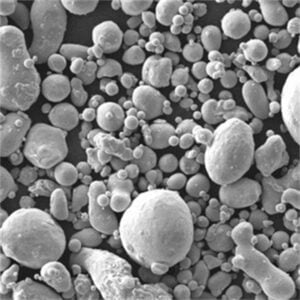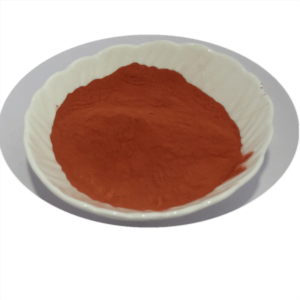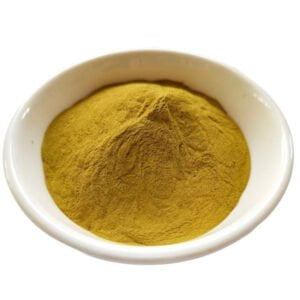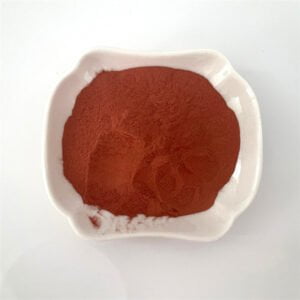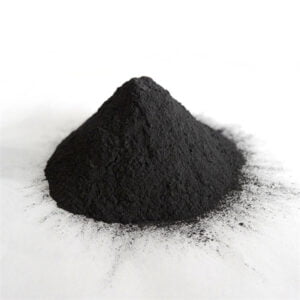Overview of High Purity Powder
High purity powder is essential in various high-tech industries due to its superior characteristics, including exceptional chemical purity, fine particle size, and consistent quality. This guide will delve into the specifics of high purity metal powders, their applications, advantages, disadvantages, and more, ensuring a thorough understanding of these materials. Whether you’re a professional in the field or a curious learner, this article will provide detailed insights into high purity powders.
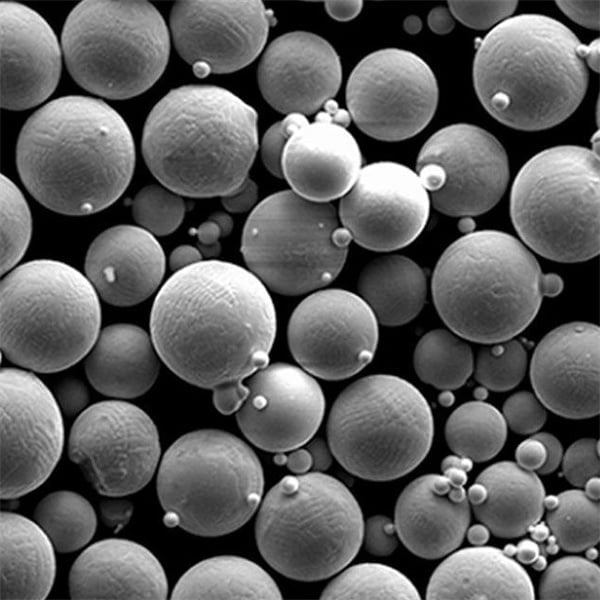
Types of High Purity Metal Powders
Different types of high purity metal powders serve various industrial needs. Here are some specific metal powder models, each with unique properties and applications:
1. High Purity Aluminum Powder
Description: Known for its excellent electrical conductivity and lightweight properties, high purity aluminum powder is widely used in electronics and aerospace industries.
Applications:
- Conductive inks
- Aerospace components
- Electronics manufacturing
2. High Purity Copper Powder
Description: This powder boasts superior thermal and electrical conductivity, making it indispensable in electronics and thermal management applications.
Applications:
- Electrical contacts
- Heat sinks
- Circuit board production
3. High Purity Titanium Powder
Description: High purity titanium powder is renowned for its strength-to-weight ratio and corrosion resistance, ideal for medical implants and aerospace parts.
Applications:
- Medical implants
- Aerospace fasteners
- Additive manufacturing
4. High Purity Nickel Powder
Description: With excellent resistance to oxidation and corrosion, high purity nickel powder is crucial in the production of superalloys and batteries.
Applications:
- Superalloys
- Rechargeable batteries
- Catalysts
5. High Purity Iron Powder
Description: This powder is used in a variety of applications due to its magnetic properties and cost-effectiveness.
Applications:
- Magnetic materials
- Powder metallurgy
- Automotive parts
6. High Purity Zinc Powder
Description: Known for its anti-corrosive properties, high purity zinc powder is used in coatings and galvanizing processes.
Applications:
- Galvanizing
- Paints and coatings
- Chemical reactions
7. High Purity Silver Powder
Description: High purity silver powder offers excellent electrical and thermal conductivity, suitable for high-end electronics and photovoltaic cells.
Applications:
- Photovoltaic cells
- Conductive adhesives
- Electronic components
8. High Purity Gold Powder
Description: Used primarily in high-end electronics and decorative applications, high purity gold powder is valued for its conductivity and corrosion resistance.
Applications:
- High-end electronics
- Jewelry making
- Thin film deposition
9. High Purity Platinum Powder
Description: With remarkable catalytic properties, high purity platinum powder is vital in chemical reactions and fuel cells.
Applications:
- Catalysts
- Fuel cells
- Jewelry
10. High Purity Palladium Powder
Description: Known for its catalytic efficiency, high purity palladium powder is used in automotive catalytic converters and electronics.
Applications:
- Catalytic converters
- Electronics
- Hydrogen storage
Properties and Characteristics of High Purity Powders
High purity powders possess specific properties that make them suitable for advanced applications. The table below outlines these characteristics:
| Metal Powder | Composition | Properties | Characteristics |
|---|---|---|---|
| Aluminum | Al 99.99% | High electrical conductivity, lightweight | Excellent for conductive inks |
| Copper | Cu 99.99% | Superior thermal and electrical conductivity | Ideal for heat sinks and circuits |
| Titanium | Ti 99.99% | High strength-to-weight ratio, corrosion resistance | Perfect for medical implants |
| Nickel | Ni 99.99% | Oxidation and corrosion resistance | Essential for superalloys |
| Iron | Fe 99.99% | Magnetic properties, cost-effective | Widely used in automotive parts |
| Zinc | Zn 99.99% | Anti-corrosive properties | Used in galvanizing and coatings |
| Silver | Ag 99.99% | Excellent electrical and thermal conductivity | Crucial for electronic components |
| Gold | Au 99.99% | High conductivity, corrosion resistance | Used in high-end electronics and jewelry |
| Platinum | Pt 99.99% | Remarkable catalytic properties | Important for catalysts and fuel cells |
| Palladium | Pd 99.99% | Efficient catalytic performance | Used in catalytic converters |
Applications of High Purity Powder
High purity powders are employed in diverse sectors due to their unique properties. Below is a detailed table of applications:
| Application Area | Metal Powders Used | Description |
|---|---|---|
| Electronics | Aluminum, Copper, Silver, Gold | Used in conductive inks, circuit boards, and components |
| Aerospace | Aluminum, Titanium, Nickel | Essential for lightweight and high-strength components |
| Medical | Titanium, Platinum | Used in implants and biomedical devices |
| Automotive | Iron, Palladium | Applied in magnetic materials and catalytic converters |
| Coatings | Zinc, Aluminum | Used in anti-corrosive and conductive coatings |
| Additive Manufacturing | Titanium, Aluminum | Utilized in 3D printing of complex parts |
| Jewelry | Gold, Platinum, Silver | Valued for aesthetics and durability |
| Energy Storage | Nickel, Zinc | Important in batteries and fuel cells |
| Catalysts | Platinum, Palladium, Nickel | Critical in chemical reactions and pollution control |
| Chemical Production | Zinc, Nickel | Used in various chemical processes |
Specifications, Sizes, Grades, and Standards
The specifications of high purity powders vary based on their intended use. Here’s a table outlining typical sizes, grades, and standards:
| Metal Powder | Typical Sizes (µm) | Grades | Standards |
|---|---|---|---|
| Aluminum | 1-50 | 99.99% purity | ASTM B928 |
| Copper | 1-50 | 99.99% purity | ASTM B187 |
| Titanium | 1-45 | 99.99% purity | ASTM F1580 |
| Nickel | 1-45 | 99.99% purity | ASTM B6 |
| Iron | 1-100 | 99.99% purity | ASTM A848 |
| Zinc | 1-50 | 99.99% purity | ASTM B949 |
| Silver | 1-10 | 99.99% purity | ASTM B822 |
| Gold | 1-10 | 99.99% purity | ASTM B488 |
| Platinum | 1-10 | 99.99% purity | ASTM B942 |
| Palladium | 1-10 | 99.99% purity | ASTM B832 |
Suppliers and Pricing Details
Various suppliers offer high purity powders at competitive prices. The table below provides an overview of key suppliers and their pricing:
| Supplier | Metal Powder | Price (USD per kg) | Additional Details |
|---|---|---|---|
| American Elements | All listed powders | 100-10,000 | Bulk orders available, custom sizes |
| Alfa Aesar | All listed powders | 150-12,000 | High purity grades, wide distribution |
| Sigma-Aldrich | All listed powders | 200-15,000 | Laboratory and industrial quantities |
| Advanced Metal Powders | Aluminum, Titanium | 120-8,000 | Specialized in aerospace applications |
| Nanografi | Copper, Nickel, Iron | 110-9,000 | Nanoparticle sizes available |
| SkySpring Nanomaterials | Silver, Gold, Platinum | 250-20,000 | Nanopowders and high purity grades |
| Goodfellow | Palladium, Zinc | 180-10,000 | Custom specifications and fast delivery |
Comparing Pros and Cons of High Purity Powders
Each type of high purity powder has its advantages and limitations. The table below compares these factors:
| Metal Powder | Advantages | Disadvantages |
|---|---|---|
| Aluminum | Lightweight, high conductivity, corrosion resistance | Lower melting point |
| Copper | Excellent conductivity, easy to work with | Prone to oxidation |
| Titanium | High strength-to-weight ratio, biocompatibility | Expensive, difficult to machine |
| Nickel | Corrosion and oxidation resistance | Can cause allergic reactions |
| Iron | Magnetic properties, cost-effective | Rusts easily if not treated |
| Zinc | Anti-corrosive properties, cost-effective | Brittle in pure form |
| Silver | Highest electrical conductivity, antimicrobial properties | Expensive, tarnishes easily |
| Gold | Corrosion resistance, excellent conductivity | Very expensive |
| Platinum | Superior catalytic properties, corrosion resistance | Extremely expensive |
| Palladium | Efficient catalyst, stable at high temperatures | High cost |

FAQs
| Question | Answer |
|---|---|
| What are high purity powders? | High purity powders are finely ground materials with exceptional purity, typically used in advanced manufacturing processes. |
| Why is purity important in metal powders? | High purity ensures consistent performance, reduces impurities that can affect properties, and is crucial in applications requiring high precision. |
| How are high purity powders made? | They are produced through processes like atomization, chemical reduction, and electrolysis, ensuring minimal contamination. |
| What industries use high purity powders? | They are used in electronics, aerospace, medical, automotive, energy storage, and more. |
| Can high purity powders be customized? | Yes, suppliers often offer customization in terms of particle size, shape, and purity levels to meet specific requirements. |
| What are the storage requirements for high purity powders? | They should be stored in dry, cool environments, often in inert atmospheres to prevent oxidation or contamination. |
| Are there safety concerns with handling high purity powders? | Proper safety measures, including protective equipment and ventilation, are necessary to avoid inhalation or contact with reactive materials. |
Conclusion
High purity powders are critical in many advanced industries due to their exceptional properties and versatility. By understanding the types, applications, specifications, and benefits of these powders, businesses and researchers can make informed decisions that enhance their projects and products. Whether you’re delving into electronics, aerospace, medical applications, or beyond, high purity powders offer the quality and performance needed to succeed.
This comprehensive guide aims to provide valuable insights into the world of high purity powders, ensuring you’re well-equipped to navigate this specialized field.

